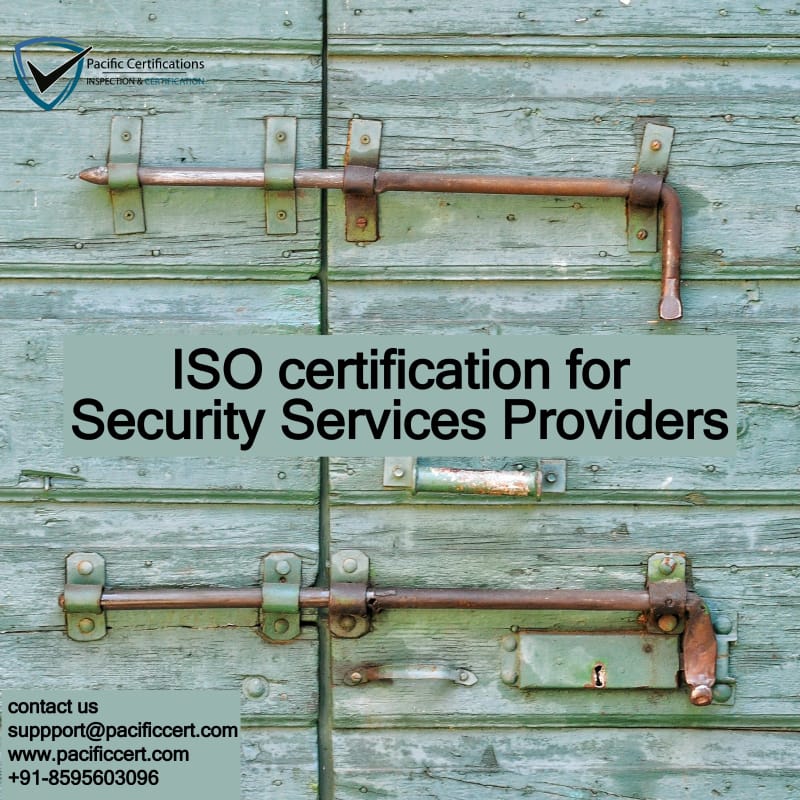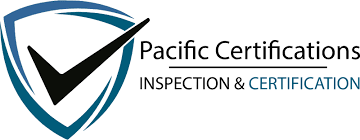ISO Certifications for Security Services, Popular Standards, Requirements and Benefits

Introduction
Security service providers play a vital role in protecting organizations, communities, and individuals from both physical and digital risks. Whether it’s manned guarding, cash-in-transit, access control, surveillance monitoring, or cybersecurity, a security company’s success relies heavily on trust and steady performance.
Implementing ISO standards helps these companies maintain control over their operations and deliver reliable services. ISO certifications give security organizations a clear way to show that their systems and teams follow internationally accepted best practices for quality, safety, information protection, and risk management.
For certification inquiries, contact [email protected].
Trust in security begins with systems that prove accountability. ISO certification turns that trust into measurable performance.— Pacific Certifications
Applicable ISO Standards for Security Services Providers
ISO 9001: Quality Management Systems (QMS): This standard is essential for demonstrating the ability to consistently provide services that meet customer and regulatory requirements. It focuses on continual improvement and customer satisfaction, which are critical for security services providers seeking to establish trust and reliability in their offerings.
ISO 27001: Information Security Management Systems (ISMS) : For security services companies, especially those dealing with sensitive information, ISO 27001 is crucial. It outlines the requirements for establishing, implementing, maintaining, and continually improving an information security management system.
ISO 45001: Occupational Health and Safety Management Systems: Given the potential risks associated with security services, ISO 45001 is vital for ensuring the welfare of employees. It helps organizations to reduce workplace injuries and illnesses, promoting a safer and healthier working environment.
Click here to find out more applicable standards to your industry
What are the requirements of ISO Certifications for Security Services Providers
ISO certification for Security Services Providers companies involves adhering to specific standards that ensure quality, reliability, and continuous improvement in their service delivery. Below are the key requirements across all the standards:
Define clear policies for quality, safety, data protection, and ethics aligned with business strategy.
Identify threats, vulnerabilities, and controls for both field operations and information systems.
Establish and maintain documented procedures for patrols, incident response, client communication, and reporting.
Ensure guards and supervisors are trained in emergency response, data privacy, and safe working practices.
Conduct periodic audits to verify compliance and assess operational performance.
Leadership must review system performance, incident reports, and improvement actions.
Address nonconformities, determine root causes, and implement corrective measures.
Adhere to labor laws, licensing, weapons handling, and data protection regulations.
Monitor key performance indicators and regularly enhance system effectiveness.
Tip: Train every security guard not just to observe and report — but to understand how their actions align with your ISO policies and risk management goals.
What are the benefits of ISO Certifications for Security Services?
Regulatory and Licensing Compliance – Simplifies approval processes with government and private-sector clients.
Operational Control and Efficiency – Standardized procedures improve performance, communication, and accountability.Credibility and Client Confidence – Demonstrates professionalism, transparency, and compliance with international standards.
Workplace Safety and Morale – Promotes a strong safety culture, reducing accidents and absenteeism.
Risk and Threat Mitigation – Systematic risk management minimizes incidents, losses, and liabilities.
Data and Information Protection – Ensures integrity and confidentiality of client data and surveillance systems.
Business Continuity and Resilience – Guarantees uninterrupted operations even during crises or disasters.
Market Advantage and Tender Eligibility – Many clients require ISO 18788 or 9001 certifications for bidding.
Enhanced Reputation and Global Recognition – Positions the organization as a reliable, ethical, and compliant service provider.
Environmental Responsibility – ISO 14001 supports sustainable fleet management and resource optimization.
The global private security market is witnessing sustained growth driven by rising urbanization and increased emphasis on public and corporate safety. According to research by Fortune Business Insights, the industry is projected to reach USD 310 billion by 2030, growing at a CAGR of about 6.5%.
In the Asia-Pacific region, demand is expanding fastest due to construction of smart cities and critical infrastructure projects, while the Middle East and Africa are experiencing growth in oil, gas, and defense facility protection.
North America and Europe continue to focus on cyber-physical integration — linking traditional guarding with digital surveillance, analytics, and access-control technologies.
How Pacific Certifications Can Help
Pacific Certifications, accredited by ABIS, conducts independent audits and certification for all major ISO standards. We do not provide consultancy but offer impartial, accredited certification that is globally recognized.
Pacific Certifications can help by:
Conducting audits for ISO 18788, 9001, 45001, 27001, and 22301.
Issuing internationally accepted certificates demonstrating compliance.
Supporting integrated audits for multi-location security firms.
If you need support with ISO certification for your Security business, contact us at [email protected] or +91-8595603096.
Contact Us
If you need support with ISO certification for Security Services, contact us at [email protected].
Author: Sony
Read More at: Blogs by Pacific Certifications

